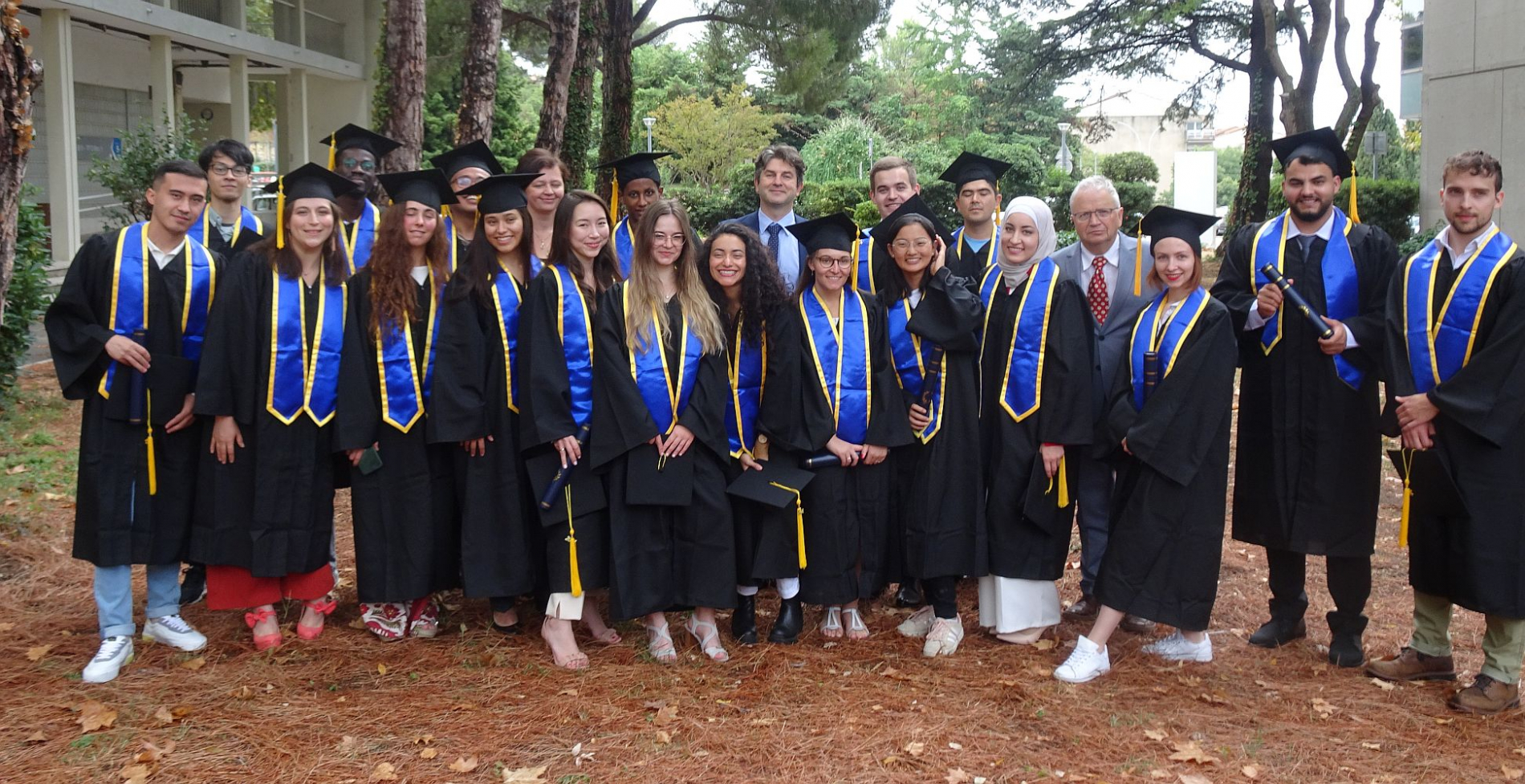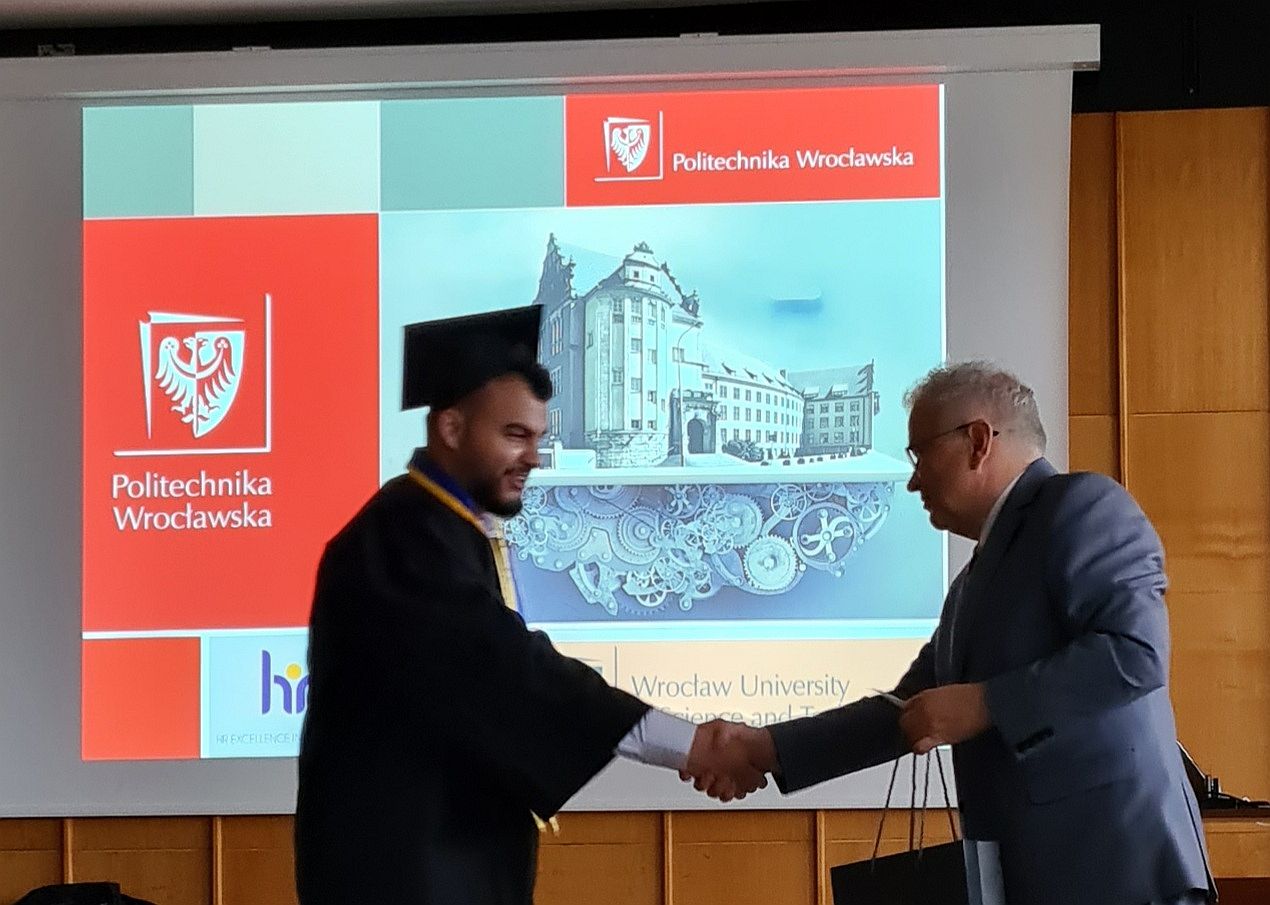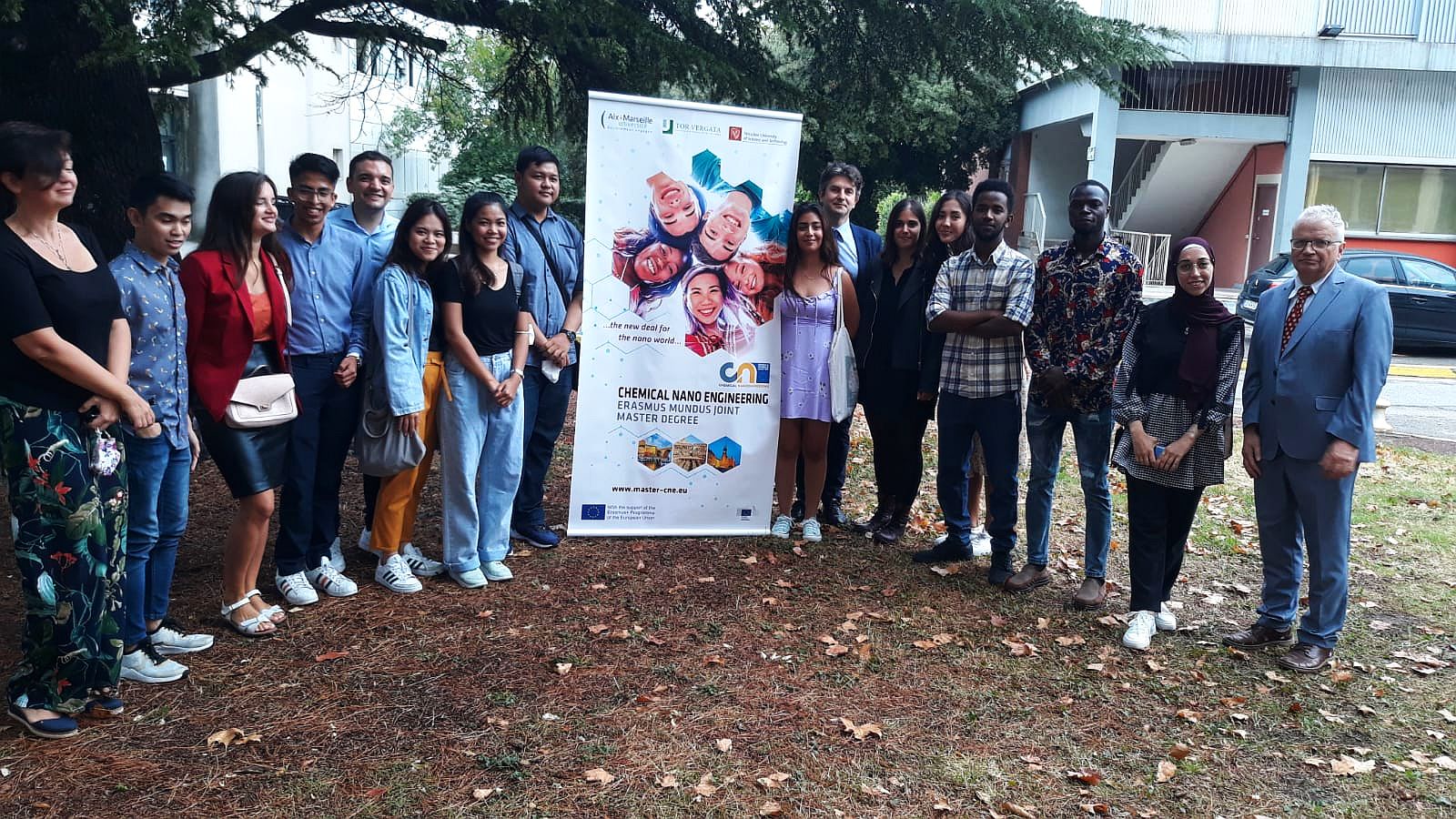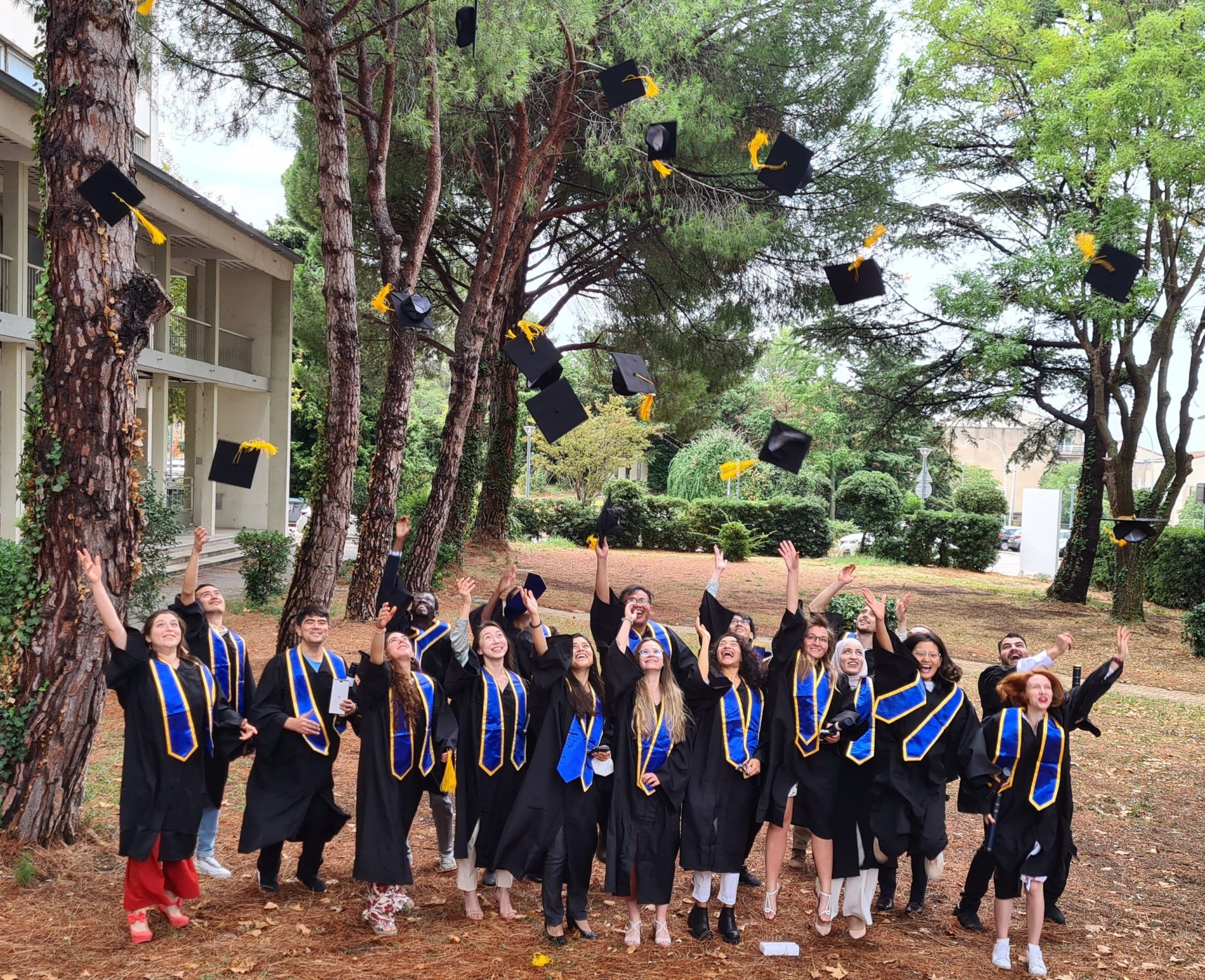YOUR BROWSER IS OUT-OF-DATE.
We have detected that you are using an outdated browser. Our service may not work properly for you. We recommend upgrading or switching to another browser.
Date: 11.10.2021 Category: general news, international cooperation, studies, workshops/presentations/trainings
Wrocław Tech has participated in the Erasmus Mundus Joint Master Degree programme for several years. Together with universities in Marseille and Rome, we train students to become specialists in Chemical NanoEngineering (CNE). New graduates have just completed their four-semester master's degree programmes.
The Erasmus Mundus Joint Master Degree Chemical NanoEngineering (CNE) is an international master's degree programme that provides a broad interdisciplinary education in the thriving field of nanoengineering and nanotechnology. Wrocław University of Science and Technology has participated in the initiative since 2018. The courses are held within a consortium of three universities: Aix-Marseille University in France, Wrocław University of Science and Technology and Roma Tor Vergata University in Italy.

– Participants in our programme gain broad competencies in dealing with nanoscale objects and systems, both experimental ones – in synthesis and physicochemical characterisation, and theoretical and numerical ones – necessary for their design – explains Prof. Szczepan Roszak of the Faculty of Chemistry, the coordinator of the programme edition which ends next year.
– Traditional courses in the field of materials science were designed so that students understand how the properties of materials on the macro scale are determined by the properties of individual molecules or clusters of molecules – adds the professor.
The first three semesters are the same for all students, who spend one semester each in Marseille, Wrocław, and Rome, while the final semester of the programme is devoted to the student’s master's thesis developed at one of the partner universities or an affiliated institution.
– MSc candidates have the opportunity to work on their projects in a multinational and multidisciplinary scientific or industrial environment. The crowning moment of their work is the public presentation of their master's theses and the graduation exam taken in Marseille in front of the commission as well as junior and senior (already graduated) participants of the programme – explains Prof. Szczepan Roszak, who took part in such an exam at Aix-Marseille University in France in September.

Twenty-two people from 17 countries who had completed the two-year study cycle (which started in 2019) presented their theses in the field of chemical nanoengineering. The Faculty of Chemistry was represented in the diploma commission by Prof. Szczepan Roszak, University professor Piotr Rutkowski, PhD, DSc, Eng., and Elżbieta Zienkiewicz, PhD, Eng. Students who took the diploma exam then enjoyed receiving their Master of Science and Engineer degree and, together with their peers, celebrated their joint degree certificates.
– The graduates appreciated the great commitment of all partners, coordinators, and teachers to preparing and delivering the studies during the difficult pandemic time. They also stressed that the opportunity to get to know other countries and cultures, as well as the universities’ different teaching methods, are great advantages of participating in the programme – says Elżbieta Zienkiewicz, PhD.
The academic is pleased to add that graduates of the programme are kept in high regard and most of them are already pursuing their doctorates – mainly in Europe but also in the US.

The University of Aix-Marseille in France has also organised orientation days for students taking part in the programme’s fourth enrolment procedure. They had the opportunity to meet their new peers, representatives of the three universities partnering in the programme (including the Wrocław University of Science and Technology) as well as alumni.
– By combining graduation exams with orientation days for subsequent year groups, the project coordinators ensure to build a community of alumni and students who become ambassadors of the programme and the universities taking part in it, including Wrocław University of Science and Technology – stresses Prof. Piotr Rutkowski, who coordinates the currently starting edition of the programme.

The coming admissions to the CNE Master 2022-2024 programme start on November 1, 2021, and end on February 14, 2022.
For more details on Chemical Nano-Engineering, please visit the project’s website.
Our site uses cookies. By continuing to browse the site you agree to our use of cookies in accordance with current browser settings. You can change at any time.